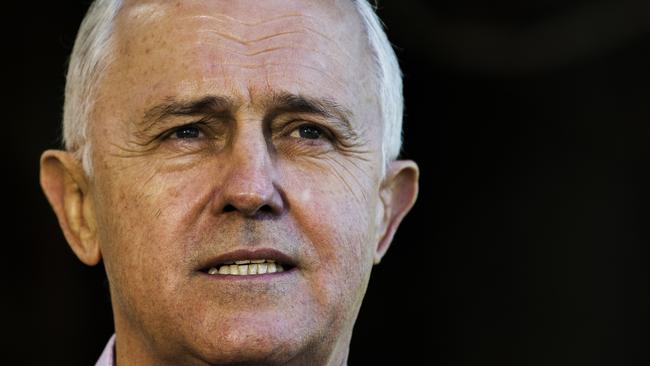Primary problem is staring the Liberal Party right in the face
Once a party loses control of its primary vote, it loses its purpose and providence is conferred to the political extremes.

There are many lessons to be learned from the Longman result but there is a singular, defining message for the government.
Once a party loses control of its primary vote, it loses control of its purpose and providence is conferred to the political extremes.
The long-held myth that the Liberal Party base would have nowhere on the Right to go under a moderate Liberal government has been exposed. Again.
In this pocket of southeast Queensland, the disaffected have gone not only to One Nation, they have also gone to Labor. What the LNP must consider now is how Bill Shorten, a supposedly unelectable leader from Melbourne who is considerably unpopular in Queensland, recorded a bigger two-party-preferred vote in Longman than Queensland hero Kevin Rudd managed in the 2007 Ruddslide.
Whichever way you spin it, a primary vote of 29 per cent is appallingly bad, even for a by-election. The LNP primary vote in Longman was almost 44.8 per cent at the 2013 election. In 2016, it fell to 39 per cent. The recent Newspoll quarterly analysis had Queensland as the worst state for the Coalition at 36 per cent primary statewide.
Consideration would have to be given to whether this is now over-estimated. This should send shivers through the spines of Queensland MPs. Equally it should not be dismissed by the national apparatus as simply the effect of a typical by-election swing.
The result has exposed structural, political and policy failures at state and national levels. How these issues can be resolved in the absence of an acknowledgment is anyone’s guess.
The LNP has serious issues with its candidate vetting. The fact a Labor operative could expose the military medal disaster by googling his profile is farcical. The LNP’s unique structure, which lets delegates select candidates with little state executive involvement, speaks for itself. This is not the only problem. The LNP hasn’t grasped it is in a fight for survival with One Nation. Talk of preference deals with Pauline Hanson confirms it has surrendered to mediocrity by ignoring what should be a fundamental pursuit of recovering its primary vote. At a national level, the lack of political management long identified as a problem for the Turnbull government has yet again been exposed.
It lacked a strong narrative to counter Shorten’s class war and anti-business campaign and let Labor continue to perpetrate myths and falsehoods about health policy. Clearly it has learned nothing from the Mediscare campaign. It has not yet dawned on the leadership group it is in an existential fight with the Catholic school sector. This is a failure of policy and politics. Having the sector campaign in Batman where the Liberals weren’t running is one thing; having it enter Longman on the eve of a by-election was a declaration of war.
The conclusion can only be the government’s political strategy, a mystery to some of its own people, does not seem to be working.
There should be a caveat on the Longman result. What is possible in a by-election is not necessarily possible in a general election. Voters in Longman knew their vote would not put Shorten in The Lodge. Some, if not a large, portion of the primary vote should come back at a general election, but it’s not guaranteed.
The point made by some senior Liberal members is there was hope some of the political momentum behind Turnbull this year would have been converted into electoral benefit, if even only modest.


